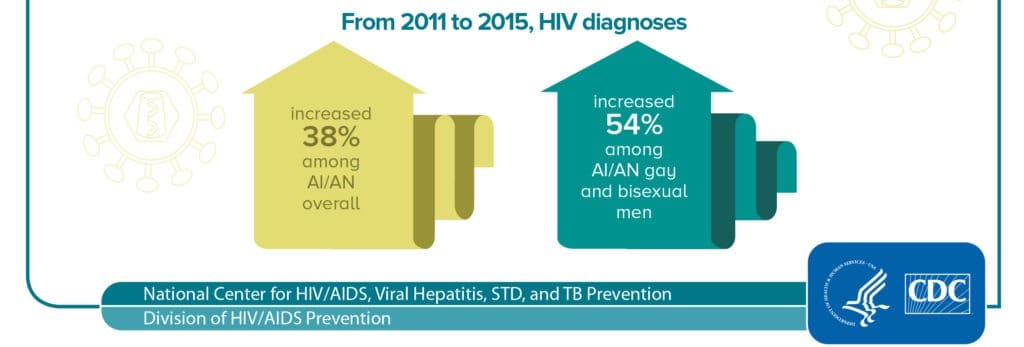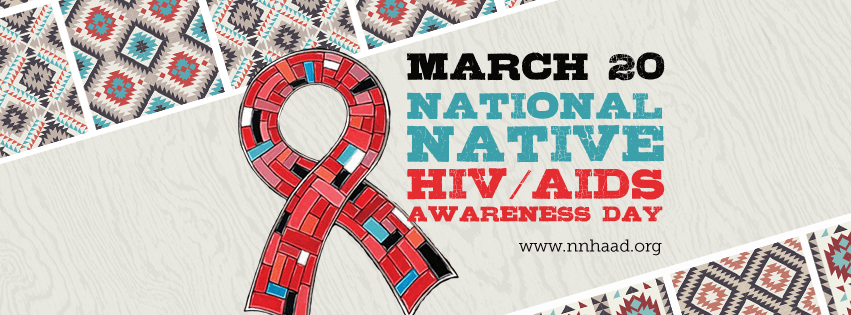March 20 marks National Native HIV/AIDS Awareness Day, a time to remember those who have passed as well as those currently affected by HIV/AIDS. National Native HIV/AIDS Awareness Day is an opportunity to call for increased testing resources and seek support for increasing treatment and care options.
Raising awareness of the risks of HIV and AIDS to Native communities and the impact it has on American Indians, Alaska Natives, and Native Hawaiians is especially important because of its significant rate among the Native population. Stigma, fear, discrimination, and homophobia can place many at higher risk, especially those who live in rural communities or on reservations.
There are over 560 federally recognized American Indian and Alaska Native (AI/AN) tribes and over 170 languages. Creating culturally appropriate prevention programs for each group can be challenging because each tribe has its own culture, beliefs, and practices.
Compared with other racial/ethnic groups, Native Hawaiians/Pacific Islanders and AI/ANs have the third and fourth highest rate of new HIV infections, respectively. Of those diagnosed with AIDS, AI/ANs had the shortest overall survival time, with 87 percent living longer than three years.
According to the Centers for Disease Control (CDC), diagnosed HIV infections among Native people are proportional to their population size. Of the 39,782 HIV diagnoses in the U.S. in 2016, 1 percent (243) were among AI/AN populations.

It is important for everyone to know their HIV status. An estimated 17 percent (6,725) of the 39,513 HIV diagnoses in 2015 were among Americans aged 50 and older, according to CDC. The CDC recommends that all adults and adolescents get tested for HIV at least once as a routine part of medical care, while those at increased risk should get an HIV test at least every year. People who don’t know they have HIV can’t get the treatment they need and may unknowingly pass the infection to others. Getting tested is the first step in protecting health and stopping the spread of the virus.
As many as 26 percent of AI/AN people living with HIV infection do not know it. To find a testing site near you, call 1-800-232-4636, visit hivtest.cdc.gov or text your zip code to 566948. Home testing kits are available online or at a pharmacy. You may also find a testing location by visiting your local Indian Health Services (IHS) Tribal or Urban facility. HIV/AIDS testing is free at all IHS facilities.

I totally agree when you mentioned that everyone should get tested for HIV so they can get the treatment early and avoid spreading it to other people. It is very important to be aware of your current health condition as you would not know who you might pass the disease if you are being careless. Therefore, I think it would be great if there is free HIV testing, people should take the opportunity to get themselves tested.
Hi,
Thanks for sharing this wonderful article. It is very good information about some of the curing of HIV/AIDS infection. It was very useful for many, including me to explore and gather information about HIV/AIDS. It is a must-read blog to explore the new information about HIV infection curable medicines. Keep posting!!
Since, HIV is rising day by day so this is best topic to discuss. We have to aware about it. We have got valuable information from this article. This is good topic to explore information on HIV treatment. Many of us are not aware of it. I would like to get more information on this topic.
National Native HIV/AIDS Awareness Day is vital for education and prevention. Culturally relevant resources and community involvement empower individuals to combat stigma. Thank you for sharing!